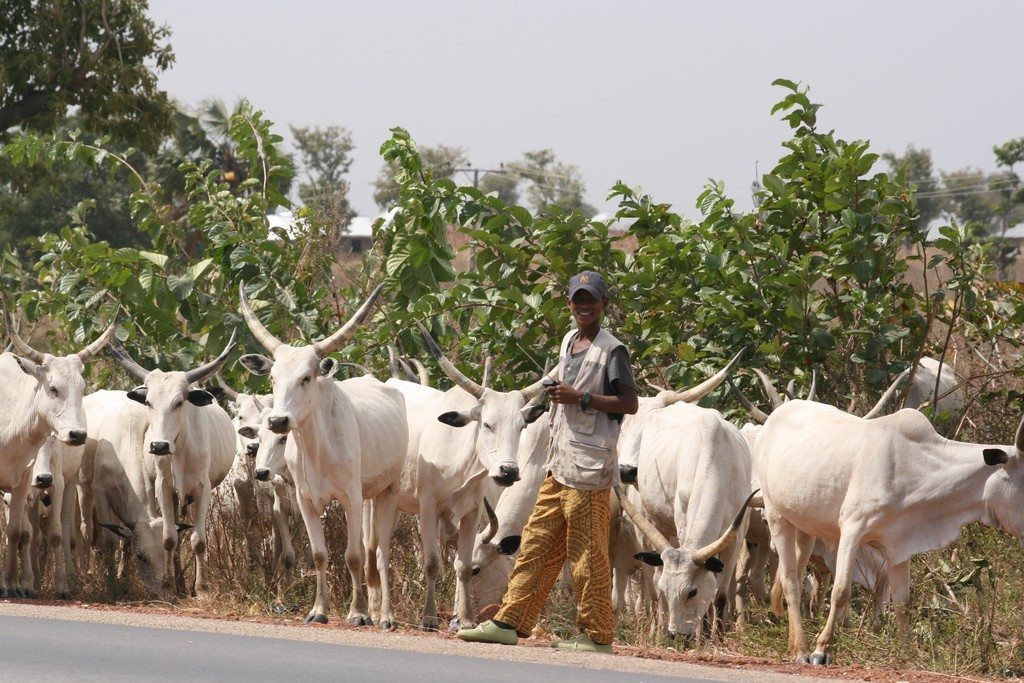Don Suggests Kenya Model To Nigeria’s Herdsmen. Says; Pastoral Nomadism Is An Old Practice & Part Of The Fulani Culture & Identity But The Truth Is That It Has Become Outdated.''
A university don has slammed pastoral nomadism as outdated and urged the Nigerian government to prevail on herdsmen to embrace the zero grazing model as practiced in Kenya. The suggestion was made in Addis Ababa by Dr. Yakubu Bununu, the Coordinator, School of Postgraduate studies at the Ahmadu Bello University (ABU), Zaria.
He spoke at the end of this year’s African Land Policy Conference in the Ethiopian capital. Bununu said the Kenya model would reduce the incessant clashes between the herdsmen and farmers, which have resulted in the loss of hundreds of human and cattle lives and destruction of farm products.
He also said the adoption of the model would significantly modernize the cattle economy. The university don, who also heads a team of researchers funded by the University of Groningen, Netherlands, pointed out that the anti-grazing law enacted by some states of the federation would pose more security challenges.
“On the other hand, the herdsmen may have to face the reality of modernization. They cannot continue to go about looking for pasture and water to feed their cattle. There are examples of modern ways of feeding the cattle. The Masai (in Kenya) is a very good example that would improve the earnings of the herdsmen,” he said.
The second conference on Land Policy in Africa came to a remarkable end last weekend with high hopes and expectations on better land governance in Africa. Participants from national governments, international agencies, academia, diplomatic corps, traditional rulers, non-governmental organizations and civil society organizations, agreed that the conference largely met expectations.
No fewer than 490 people, from 50 countries, participated in the conference, with the theme: ‘The Africa we want: achieving socioeconomic transformation through inclusive and equitable access to land by the youth’ At the conference, 96 scientific papers were presented. There were also 20 roundtable/policy dialogues, 11 side-events, and three Masterclasses.
Bununu said unilateral banning of open grazing in Nigeria is not the right way to go.
“This is because the action appears punitive and discriminatory. However, I don’t believe that the herders should also be allowed to roam around as they please. Pastoral nomadism is an old practice and part of the Fulani culture and identity but truth is that it has become outdated”.
“I think we need to fundamentally change the thinking of this group of people and introduce to them the more modern practice of ranching and growing of pasture. There is no need for migration in search of water and food. The case of the Masai in East Africa is a good reference point”, he said.
Bununu, however, said that one major area which has to be fully appreciated is the contribution of climate change and urbanization to the herdsmen’s crisis.
“Population pressure and urbanization are part of the fundamental causes of the crisis. We need to pay more attention to what is happening in our environment. The resources are shrinking and the demand for them is growing. This inevitably leads to conflict,” he said.
Majority of dairy animals in Kenya are operated under zero grazing or semi grazing systems. Under the zero-grazing system, cattle are confined in one place where feed and water and healthcare are brought to the animals. The grazing pattern has been useful in densely populated areas.
Speakers pointed out that one of the main challenges to land policy development and implementation in Africa is lack of capacity to manage change.
Lack of technological know-how required to manage contemporary land reform programmes was also cited as a major constraint.
In response to these challenges, various speakers agreed that there is a need to enhance capacity and skills in support of land policy and governance.
“One of the avenues for enhancing capacity and especially skills in a sustainable manner to address the dynamic of land use and institutional change in Africa is through building capacity in the tertiary institutions of learning,” Professor Kimani Njogu said.
He called on the civil society organizations, government, and other stakeholders to build synergies so that research is translated into policy.
“There is a need for stronger synergies between CSOs and government to translate research into policies. Currently, this is difficult. We can start by building linkages between the CSOs, other stakeholders and government so that research becomes useful to our communities,” Njogu said.
In a closing statement, Mr. Collen Kelapile of the Economic Commission of Africa (ECA), pointed out the various challenges facing the continent in search of equitable land governance policy.
“The challenge that arises is how to make productive use of the outcomes (of the conference) to improve land governance in our countries; deal with the challenges confronting us; effectively utilize the evidence that has been provided for us through the various research findings; as well as implement the policy recommendations that have been made.”
“It should, therefore, be the legitimate expectation of all of us — especially the youth — that this will not be just one of the usual Conferences where after the event we all retire to our destinations and continue business as usual. Rather, we are going back armed with the knowledge and evidence which we must act on to make a difference and improve upon our land governance systems,” said Kelapile.

Comments
Post a Comment